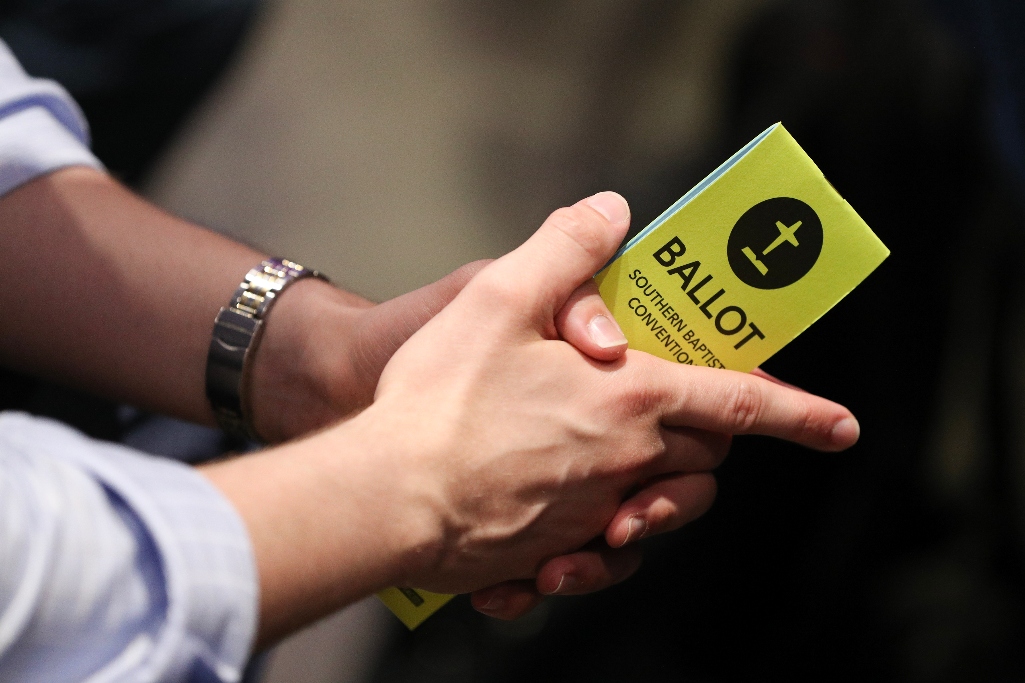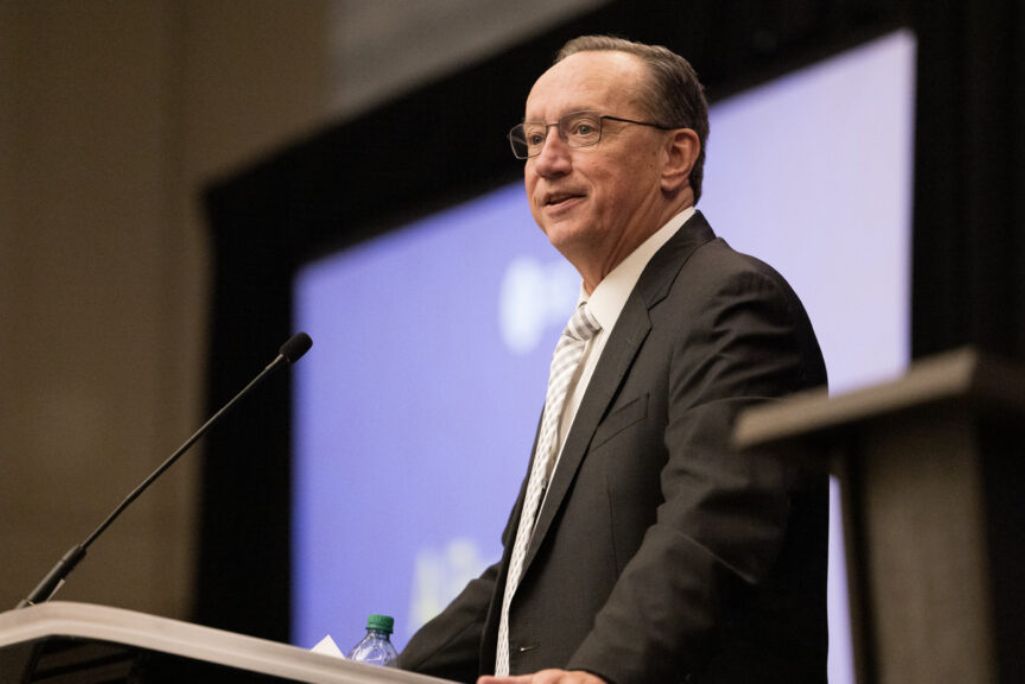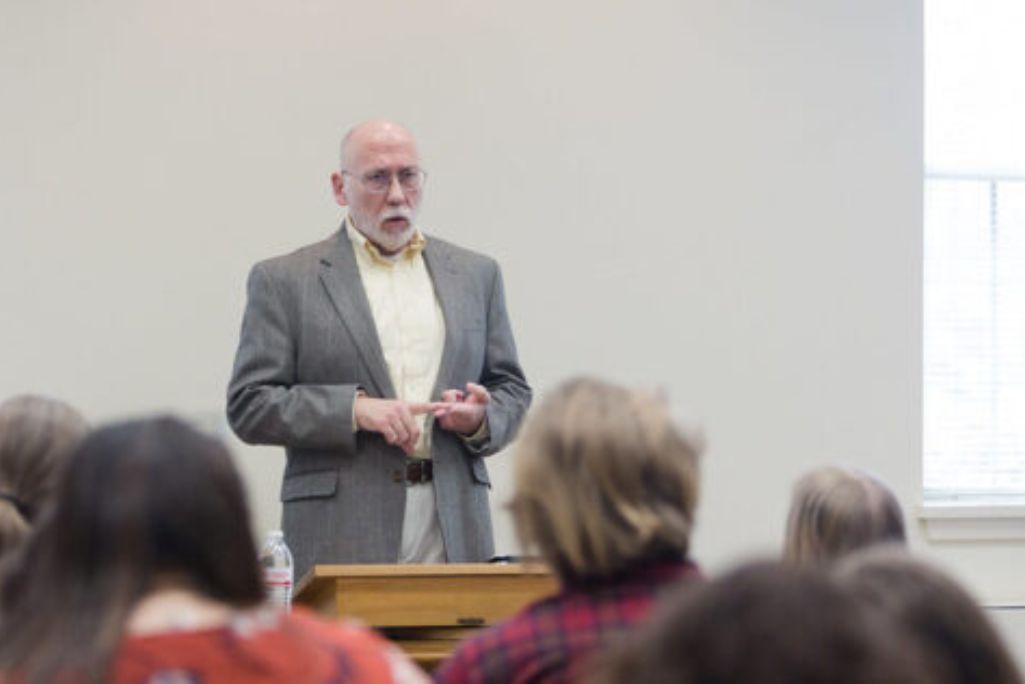
At a Southern Baptist Convention (SBC) annual meeting event, Dr. Al Mohler once described resolutions as “Baptist opinions in the moment.” That’s such an apt description of this element of our Baptist business.
When we gather yearly, amid the elections of officers and reports from appointed committees and entities, Baptists take up opportunities to make motions (actions for the convention or convention entities to take) and present resolutions (typically missional, doctrinal or cultural position statements).
Those appointed to the SBC Committee on Resolutions each year represent sharp thinkers and clear writers from across our convention to facilitate the resolutions process. The committee is entrusted to bring out, revise or hold back resolutions that have been submitted for consideration from all walks and corners of SBC life. At times, the committee may also choose to write and submit its own resolutions.
When a resolution has broad consensus, the tenor of the room resonates similarly to how the wave expressively moves around a sports stadium. And when a resolution does not have consensus, well, it can be akin to the sputtering attempts to begin the wave when the home team is lagging behind and the seats are emptying.
Sometimes the momentum lurches from a complex or divisive resolution. Other times, the convention hall seems to audibly groan from incessant amending. In recent years, I have found myself thinking of resolutions more and more in this way: We’ve not really “resolved” anything if we aren’t in consensus on the topic.
In his journal article titled “A Survey of 175 Years of Southern Baptist Resolutions” published in the spring 2023 edition of the “Southeastern Theological Review,” Christian researcher and data scientist Bill Konyk demonstrates that over the years SBC resolutions have moved from focusing on missions to focusing more on cultural issues.
This shift and trend is important to note. I believe it’s both healthy and important for us as Southern Baptists to take up the duty to speak to the culture. Topics like gender, sexuality, abortion, gambling, alcohol and more have come before Southern Baptists in the form of resolutions at our annual meetings and have provided an opportunity to speak biblical truth to culture.
In North Carolina, I served as the chair of our state’s resolutions committee in 2023. That year, we addressed one resolution regarding the abolition of abortion. In our resolution process, we worked with the authors of the original submission to revise some of the wording to come to a more broadly acceptable and supported statement on this important cultural issue.
In observing the resolutions process from multiple perspectives, it’s been noticeable that the tone or tenor of the original resolution is a factor in generating either contention or consensus. You can simply Google SBC Resolution 9 on Critical Race Theory from 2019 or the resolution to abolish abortion from 2021 to read about two more recent contentious resolutions that seemed to cause more controversy than common ground. Even the in vitro fertilization (IVF) resolution from this year led to some misunderstandings by media outlets poorly representing it or reactors simply not reading it fully. Might I say, brothers and sisters, this ought not be.
As I’ve listened to fellow SBC messengers and chatted with some of them at recent annual meetings about our resolutions process, I’ve heard everything from “I check out during the multitude of amendments,” or “We deal with too many resolutions” and even “Let’s just get rid of resolutions altogether.” Maybe there will come a time when we eliminate them completely, but I’m not sure we are there yet. I believe they are a valuable part of our historical voice, and I’m convinced they can be better received with just two suggestions.
First, I believe resolutions should invite significant consensus among us as Southern Baptists. While there may be a place from time to time for a resolution to raise awareness of a lesser known issue, the majority of our resolutions should focus our attention upon doctrine, truth or culture that many of us already holistically embrace.
Second, I believe we should focus more closely on fewer resolutions. Rather than bringing eight to 10 resolutions before the convention, we should focus on fewer — perhaps only three to five — each year. Streamlining the process by reducing the number of resolutions considered would help alleviate some stress associated with the time constraints, keep the room from tiring of resolution overload and allow for adequate discussion and debate should one or two items demand it.
When we gather as Southern Baptists, let’s resolve to resolve clearly, succinctly and universally. Perhaps we can even make resolutions enjoyable again.
(EDITOR’S NOTE — Robert Hefner is pastor of Pleasant Garden Baptist Church in Pleasant Garden, N.C. He also currently serves as vice president of the Baptist State Convention of North Carolina’s board of directors.)


